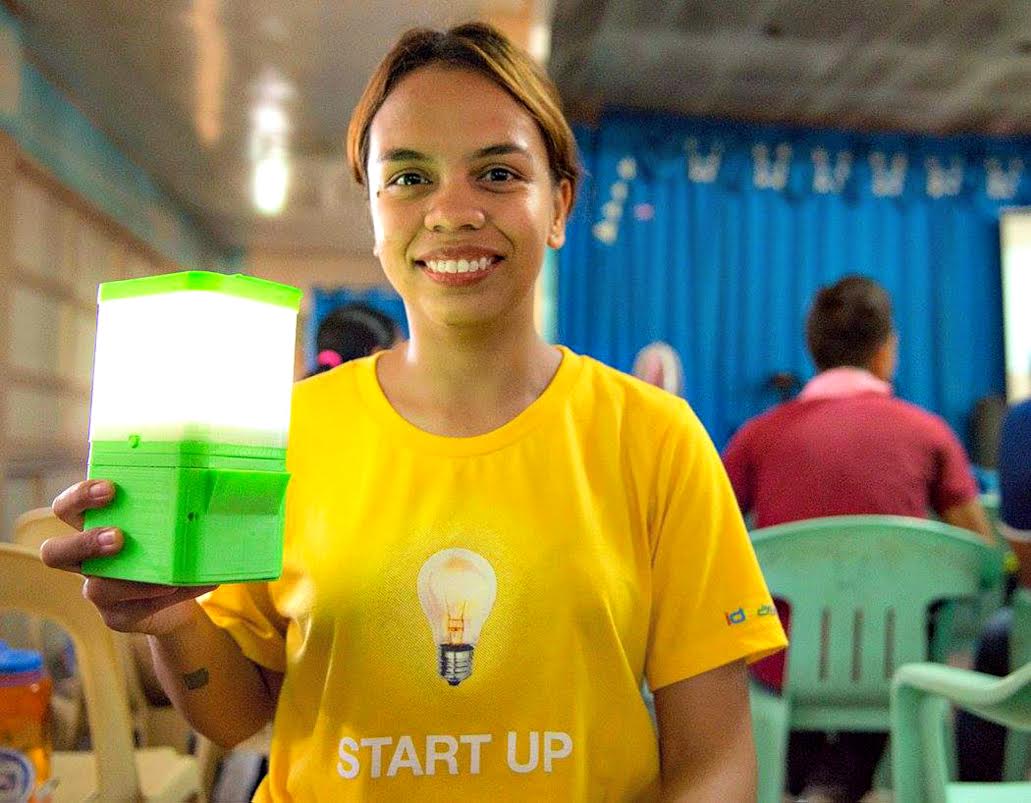Last year, Engineer Aisa Mijeno was inspired by a 2011 trip to the Kalinga Highlands to invent a lamp that doesn’t need electricity, batteries, or kerosene. It only needs salt and water. Her invention, called SALt, or Sustainable Alternative Lighting, is created by dissolving two tablespoons of salt in a glass of water. The lamp is equivalent to seven candles or the brightness of a low-LED bulb, and can last up to eight hours. According to Mijeno:
If you did the lemon-battery experiment, that’s basically it. Two different metals submerged in electrolytes will produce electricity.
For us, we used saltwater. It is an open science… so I will not be surprised if there are existing similar technologies developed out there.
Since then, she has gotten international media attention for it. She was even interviewed by US president Barack Obama and Chinese businessman Jack Ma at a forum about clean technology and climate change during the 2015 Asia Pacific Economic Cooperation (APEC) Summit in Manila last November.
Now, Engr. Mijeno confirms that the lamp might be out in the second or third quarter of the year, and that it will cost less than P500.
She told Ted Failon in a radio interview on DZMM that they have talked to businessmen and scientists to introduce the product to the local market.
It is currently being mass produced at a rate of 500 lamps per day in Binan, Laguna.
Engr. Mijeno is also in talks with the Intellectual Property Office of the Philippines (IPO) to patent the product.
She invented the SALt lamp with her brother Ralph and and electrical engineer Oscar Bryan Magtibay when she witnessed how the Butbut tribe in Buscalan made fires or walk for hours to the nearest town to buy fuel for their lamps.
SALt can prevent families from turning to dangerous and expensive alternatives like kerosene. Seventy percent of the earth’s surface is saltwater, a crucial ingredient in her invention.
And the best part? Various foundations will distribute SALt lamps for free in rural areas without electricity.
What else can be done to promote the product? Share your thoughts below!





